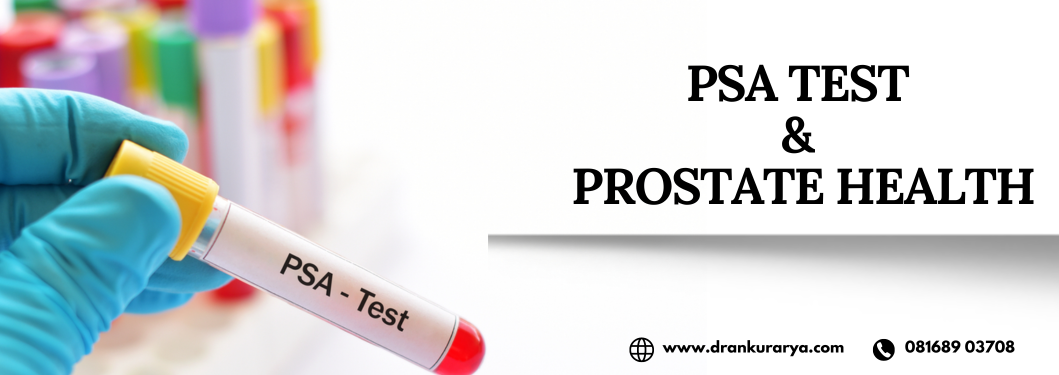Office Address
142, Avtar Enclave, Paschim Vihar, Delhi, 110063
142, Avtar Enclave, Paschim Vihar, Delhi, 110063

Understanding PSA Testing
Prostate-Specific Antigen (PSA) testing is vital for assessing prostate health. This simple blood test measures the level of PSA, a protein produced by prostate cells. Elevated PSA levels can indicate potential issues, including benign conditions and prostate cancer.
PSA testing plays a crucial role in early detection. Prostate cancer often develops without noticeable symptoms. Regular testing can help identify potential problems before they progress. Consequently, it empowers patients and their doctors to make informed decisions regarding further evaluation and treatment.
Most guidelines recommend discussing PSA testing with a healthcare provider at age 50. However, men with risk factors, such as a family history of prostate cancer, should consider testing earlier. Consulting the best urologist in Paschim Vihar can provide personalized recommendations based on individual risk factors.
PSA levels are measured in nanograms per milliliter (ng/mL). Generally, a PSA level below 4 ng/mL is considered normal. Levels between 4 and 10 ng/mL may require further evaluation, while levels above 10 ng/mL often prompt additional tests, such as a biopsy.
While PSA testing is helpful, it’s not foolproof. Elevated levels can occur due to benign prostatic hyperplasia (BPH) or prostatitis. Therefore, it’s essential to interpret PSA results in conjunction with other diagnostic tools.
For men with elevated PSA levels, regular monitoring is critical. Tracking changes in PSA over time can provide insights into prostate health. Your doctor may recommend follow-up tests every 6 to 12 months, depending on the initial results.
Finding the best urologist in Paschim Vihar ensures you receive expert guidance on PSA testing and prostate health. Urologists specialize in diagnosing and treating prostate conditions. They can help interpret PSA results, recommend follow-up tests, and develop a personalized management plan.
Next Steps After Testing
If your PSA levels are elevated, your urologist may recommend additional tests. These could include imaging studies or a prostate biopsy. A biopsy involves taking tissue samples from the prostate to check for cancer cells.
The Role of Lifestyle in Prostate Health
Maintaining a healthy lifestyle is crucial for prostate health. A balanced diet, regular exercise, and avoiding smoking can help reduce the risk of prostate issues. Some studies suggest that a diet rich in fruits and vegetables may lower the risk of prostate cancer.
Conclusion
PSA testing is a vital component of prostate health monitoring. Early detection of potential issues can lead to timely intervention and better outcomes. Men should discuss PSA testing with their healthcare provider, especially if they have risk factors. Consulting the best urologist in Paschim Vihar can provide personalized advice and management options tailored to individual needs.